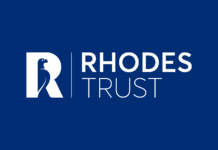Over the years there have been several published studies showing that more diverse groups are better at problem solving and accomplishing tasks because members of different racial and ethnic groups bring in different perspectives.


A new study by Evan Apfelbaum of the Massachusetts Institute of Technology, Katherine Phillips of Columbia University, and Jennifer Richeson of Northwestern University, finds that socially homogeneous groups have built in limitations and their members tend to overestimate their contributions to the group’s success. Apfelbaum states, “both diversity and homogeneity have the ability to affect how people think or make decisions.” Homogeneity, the authors write, may produce “groupthink,” where members of the group fall into an unwarranted consensus. Apfelbaum states that the homogenous groups may produce “an artificially low level of conflict, not a normal level of conflict. Homogeneity reduces the likelihood that people recognize differences of opinion that exist.”
“Being with similar people serves a very basic psychological need to belong and feel comfortable,” Apfelbaum observes. “We’re not arguing there’s no value in that. We’re arguing there is a trade-off with that. The social settings that make us feel good are not necessarily the ones that produce accurate judgments.”
The study, “Rethinking the Baseline in Diversity Research: Should We Be Explaining the Effects of Homogeneity?” was published in the journal Perspectives on Psychological Science. It may be accessed here.












This is where America and social science are at odds. This research proves that integration is a worthwhile goal, but attempts to create this social order is illusive to achieve.
[…] Perhaps their success lies in that last bit. According to several studies, homogeneous groups tend to believe that they perform better. […]